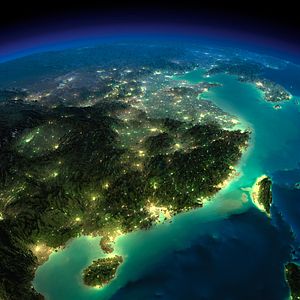Upon her return to Taiwan on Tuesday from the United States, Democratic Progressive Party (DPP) Chairwoman Tsai Ing-wen proclaimed her trip was a success.
The incumbent party in government, the Kuomintang (KMT), finds advances in Taiwan’s international exchanges, including Tsai’s visit, a welcome development. At the same time, it should be noted that if Tsai’s U.S. trip can be called a success, it was mainly made possible by her repeated statements in support of the Kuomintang’s policies toward mainland China. The KMT should thank Tsai for her support and her calls to maintain the status quo developed under seven years of KMT leadership.
Taiwan can choose two directions for its policy toward mainland China. The first is the KMT’s rapprochement policies that allow the two sides to reduce tension, increase investment, cultural exchanges, and tourism, and ensure open and transparent dialogue. This is possible on the basis of the “1992 Consensus,” acceptable to Beijing, where the two sides agree there is one China but differ on its definition. The Kuomintang believes that to be the Republic of China (Taiwan).
The other direction is that stated in the DPP’s party charter: to pursue a declaration of Taiwan’s de jure independence. This approach to cross-strait relations would risk entrapping the United States in an unnecessary conflict with mainland China.
Despite continuing concerns about the DPP charter, Tsai’s reception in Washington D.C. was an improvement relative to her similar trip in 2011, owing primarily to continued improvement in U.S.-Taiwan relations under the KMT’s leadership beginning in 2008. This high level of mutual trust and productive communication ensures the status quo of peace, prosperity, and stability in the Taiwan Strait continues. This is in the best interests of Taiwan, the United States and mainland China.
During Tsai’s U.S. visit, State Department spokeswoman Marie Harf reiterated that the United States’ strong unofficial relationship with Taiwan is based on its one China policy. In fact, Tsai said in her speech at the Center for Strategic and International Studies that if elected president, she will have a policy “in accordance with the will of the Taiwanese people and the existing ROC constitutional order.” Does this mean that if she is elected president, Tsai will base her mainland policy on the Taiwanese constitution’s “one China” principle?
Her track record on this front is worrying to say the least. Tsai was the mastermind of the 1991 formula “One China, One Taiwan” and “One Country on Each Side” (of the Taiwan Strait) in 2000 under the DPP administration, which triggered eight years of high cross-strait tensions. At the time, Tsai still claimed that these policies were consistent with the “one China” principle.
Tsai fails to reveal clearly her policy and how it will ensure the peaceful and stable development of cross-strait relations. Although she claims she will maintain the status quo, she fails to specify which version of the status quo she will maintain. What are the fundamentals underpinning that status quo if not the KMT’s 1992 Consensus? If Tsai really does favor the status quo and is offering a vision of it that’s somewhat different from the KMT’s, she has so far been unwilling to reveal it.
Most importantly, Tsai remains silent on whether she plans to depart from the DPP’s pro‑independence policy as demonstrated in the DPP’s Party Platform. If implemented, it will likely destabilize the status quo she’s vowed to maintain.
Despite claims of a successful U.S. visit by the DPP camp, Tsai’s cross‑strait policy still remains nebulous. The KMT calls on Tsai to clarify her position not just for Taiwan’s voters, but also for peace and stability in East Asia.
Lee Shih-Chuan is the secretary general of the Chinese Nationalist Party (KMT). Eric Huang also contributed to this op-ed. He is the head of the Kuomintang’s Foreign Affairs and Foreign Media sections.

































